Victim is a 1961 British suspense film directed by Basil Dearden, starring Dirk Bogarde and Sylvia Syms. It was the first English language film to use the word "homosexual". It premiered in the UK on 31 August 1961 and in the US the following February. On its release in the United Kingdom it proved highly controversial to the British Board of Film Censors, and in the U.S. it was refused a seal of approval from the American Motion Picture Production Code.
| Victim | |
|---|---|
Original 1961 British quad format cinema poster | |
| Directed by | Basil Dearden |
| Produced by | Michael Relph |
| Written by | Janet Green John McCormick |
| Starring | Dirk Bogarde Sylvia Syms Dennis Price |
| Music by | Philip Green |
| Cinematography | Otto Heller |
| Edited by | John D. Guthridge |
Production company | Allied Film Makers |
| Distributed by | Rank Film Distributors |
Release date |
|
Running time | 96 minutes |
| Country | United Kingdom |
| Language | English |
| Budget | £153,756 |
Screenplay
A successful barrister, Melville Farr (Dirk Bogarde) has a thriving London practice. He is on course to become a Queen's Counsel and people are already talking of his being appointed a judge. He is apparently happily married to his wife, Laura (Sylvia Syms).
Farr is approached by "Boy" Barrett (Peter McEnery), a younger working class man with whom Farr has shared a romantic but non-sexual relationship. Farr rebuffs the approach, thinking Barrett wants to blackmail him about their relationship. In fact, Barrett has been trying to reach Farr to appeal to him for help because he has fallen prey to blackmailers who have a picture of Farr and Barrett in a vehicle together, in which Barrett is crying with Farr's arm around him. Barrett has stolen £2,300 from his employers to pay the blackmail, is being pursued by the police, and needs Farr's financial assistance to flee the country. After Farr intentionally avoids him, Barrett is picked up by the police, who discover why he was being blackmailed. Knowing it will be only a matter of time before he is forced to reveal the details of the blackmail scheme and Farr's role, Barrett hangs himself in a police cell.
Learning the truth about Barrett, Farr takes on the blackmail ring and recruits a friend of Barrett's to identify others the blackmailers may be targeting. The friend identifies a barber who is also being blackmailed, but the barber refuses to identify his tormentors. When one of the blackmailers visits the barber and begins to destroy his shop, he suffers a heart attack. Near death, he phones Farr's house and leaves a mumbled message naming another victim of the blackmailers.
Farr contacts this victim, a famous actor, but the actor refuses to help him, preferring to pay the blackmailers to keep his secret. Laura finds out about Barrett's suicide and confronts her husband. After a heated argument, during which Farr maintains that he has kept the promise he made to Laura when they married that he would no longer indulge his homosexual attraction, Laura decides that Farr has betrayed that promise in having a relationship with Barrett and decides to leave him.
The blackmailers vandalise Farr's Chiswick property, painting "FARR IS QUEER" on his garage doors. Farr resolves to help the police catch them and promises to give evidence in court, despite knowing that the ensuing press coverage will certainly destroy his career. The blackmailers are identified and arrested. Farr tells Laura to leave before the ugliness of the trial, but that he will welcome her return afterward. She tells him that she believes she has found the strength to return to him. Farr burns the suggestive photograph of him and Barrett.
- Dirk Bogarde as Melville Farr
- Sylvia Syms as Laura Farr
- Dennis Price as Calloway
- Nigel Stock as Phip
- Peter McEnery as Boy Barrett
- Donald Churchill as Eddy Stone
- Anthony Nicholls as Lord Fullbrook
- Hilton Edwards as P.H.
- Norman Bird as Harold Doe
- Derren Nesbitt as Sandy Youth
- Alan MacNaughtan as Scott Hankin
- Noel Howlett as Patterson
- Charles Lloyd-Pack as Henry
- John Barrie as Detective Inspector Harris
- John Cairney as Bridie
- David Evans as Mickey
- Peter Copley as Paul Mandrake
- Frank Pettitt as Barman
- Mavis Villiers as Madge
- Margaret Diamond as Miss Benham
- Alan Howard as Frank
- Dawn Beret as Sylvie
- John Bennett as Undercover Detective (uncredited)
- John Boxer as Policeman in Cell (uncredited)
- Frank Thornton as George, Henry's assistant (uncredited)
This section needs additional citations for verification. (April 2012) (Learn how and when to remove this template message) |
Homosexual acts between males were illegal in England and Wales until the 1967 Sexual Offences Act, which implemented the recommendations of the Wolfenden report published a decade earlier. The fact that willing participants in consensual homosexual acts could be prosecuted made them vulnerable to entrapment, and the criminalisation of homosexuality was known as the "blackmailer's charter". Homosexuals were prosecuted and tabloid newspapers covered the court proceedings. By 1960, however, the police demonstrated little enthusiasm for prosecuting homosexual relations. There was an inclination to "turn a blind eye" to homosexuality, because there was a feeling that the legal code violated basic liberties. However, public opprobrium, even in the absence of criminal prosecution, continued to require homosexuals to keep their identity secret and made them vulnerable to blackmail. The film treats homosexuality in a non-sensationalised manner.
Scriptwriter Janet Green had previously collaborated with Basil Dearden on a British "social problem" film, Sapphire, which had dealt with racism against Afro-Caribbean immigrants to the United Kingdom in the late 1950s. After reading the Wolfenden report and, knowing of several high-profile prosecutions of gay men, she became a keen supporter of homosexual law reform. She wrote the screenplay with her husband John McCormick. Despite its then controversial subject, it was in other respects quite conventional in being quite chaste. Farr has not had sex with Barrett, nor with the man he loved at university. The audience is allowed just one glimpse of a photo of two heads: Farr and Barrett seen from the obverse of the print, and the screenplay underscores the fact that only Barrett's tears suggest anything untoward, along with the breaking of social taboos in that they are different classes and far apart in age. Also, the film promises that Farr and Laura will remain united and faithful to one another. As Pauline Kael wrote:
The hero of the film is a man who has never given way to his homosexual impulses; he has fought them–that's part of his heroism. Maybe that's why he seems such a stuffy stock figure of a hero... The dreadful irony involved is that Dirk Bogarde looks so pained, so anguished from the self-sacrifice of repressing his homosexuality that the film seems to give rather a black eye to heterosexual life.
The language the screenplay used to describe its controversial subject attracted comment. It used "the familiar colloquial terms", wrote one reviewer without specifying them, even as he referred to "homosexuality", "the abnormality", and "the condition". The term "queer"–then a pejorative term not yet adopted by advocates for LGBT rights–is used several times in the film. "FARR IS QUEER" is painted on Farr's garage door. Farr and other characters use the term. The more polite "invert" appears as well.
When the team of producer Michael Relph and director Basil Dearden first approached Bogarde, several actors had already turned down the role, including Jack Hawkins, James Mason, and Stewart Granger. In 1960, Bogarde was 39 and just about the most popular actor in British films. He had spent fourteen years being cast as a matinée idol by the Rank Organisation. He had proven himself playing war heroes (The Sea Shall Not Have Them; Ill Met by Moonlight); he was the star of the hugely successful Doctor film series; and he was a reliable romantic lead in films like A Tale of Two Cities. He was flirting with a larger, Hollywood career by playing Liszt in Song Without End. British audiences had named him their favourite British film star for years. Bogarde was suspected to be homosexual, lived in the same house as his business manager, Anthony Forwood, and was compelled to be seen occasionally in public with attractive young women. He seems not to have hesitated to accept the role of Farr, a married lawyer with a homosexual past that he has not quite put behind him. Bogarde himself wrote the scene in which Farr admits to his wife that he is gay and has continued to be attracted to other men despite his earlier assurances to the contrary. In his first independent film project in his 34th film, he said in 1965, "For the first time I was playing my own age. At Rank, the fixed rule was that I had to look pretty. Victim ended all that nonsense." He wrote years later in his autobiography that his father had suggested he do The Mayor of Casterbridge, "But I did Victim instead, ... playing the barrister with the loving wife, a loyal housekeeper, devoted secretary and the Secret Passion. It was the wisest decision I ever made in my cinematic life. It is extraordinary, in this over-permissive age , to believe that this modest film could ever have been considered courageous, daring or dangerous to make. It was, in its time, all three."
Similarly, though several actresses had turned down the role, Sylvia Syms readily accepted the part of Laura, married at age 19 and childless, which required her to be at times frustrated and self-assertive and at others heroically sympathetic. Other gay cast members included Dennis Price and Hilton Edwards.
Syms later recalled that filming had to be completed in just ten days. Shooting locations included The Salisbury, a pub on St Martin's Lane in the Covent Garden area of London. The project was originally entitled Boy Barrett and the name changed to Victim late in production. Relph and Dearden acknowledged that the film was designed to be "an open protest against Britain's law that being a homosexual is a criminal act".
Victim premiered at the Odeon Cinema in Leicester Square on 31 August 1961. The U.S. premiere followed at two theaters in New York on February 5, 1962.
It was the only British entry in the Venice Film Festival in 1961, where an Italian critic commented: "at last the British have stopped being hypocrites".
Ratings
An official of the British Board of Film Censors (BBFC) had set out its view of homosexuality in film: "to the great majority of cinema-goers, homosexuality is outside their direct experience and is something which is shocking, distasteful and disgusting". Relph said that in Victim, by contrast: "What I think we want to say is that the homosexual, although subject to a psychological or glandular variation from sexual normality, is a human being subject to all the emotions of other human beings, and as deserving of our understanding. Unless he sets out to corrupt others, it is wrong for the law to pillory him because of his inversion." He said Victim was "a story not of glands but of love."
Although a number of controversial scenes were cut before the film's release during discussions with the BBFC, including scenes with teenagers. the BBFC nevertheless gave the film an "X" rating; that is, "recommended for adults only", a classification which was then usually given to erotica or horror films. In a letter to the filmmakers, the BBFC secretary raised four objections to the film. First, a male character says of another man: "I wanted him". Second, references to "self-control" in the revised script were omitted from the filmed discussion of homosexuality, leaving the discussion "without sufficient counterbalance". Third, the film implies that homosexuality is a choice, which "is a dangerous idea to put into the minds of adolescents who see the film". Finally, the one blackmailer who unleashes a tirade against homosexuality is so unsympathetic that the views expressed will be discredited.
In the United States, the Motion Picture Association of America's Production Code Administration, the film industry's self-censorship board that enforced the guidelines established by the Motion Picture Production Code, denied Victim its seal of approval. A spokesperson cited the film's "candid and clinical discussion of homosexuality" and its "overtly expressed pleas for social acceptance of the homosexual, to the extent that he be made socially tolerable". He noted that the subject of homosexuality was acceptable under the recently relaxed Production Code if handled with "care, d
Watch movie Victim 1961 Film online on Amazon
Watch movie Victim 1961 Film online
Watch The Movie On PrimePrem Deewane Full HD Movie Download
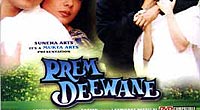
Ujala Full HD Movie Download

Meharbani (1982) Full HD Movie Download
.jpg)
Khoon Khoon Full HD Movie Download

Chase Full HD Movie Download

Prem Tapasya (1983) Full HD Movie Download
.jpg)
Double Dhamaal Full HD Movie Download

Baali Umar Ko Salaam Full HD Movie Download

Cake-A Wedding Story Full HD Movie Download
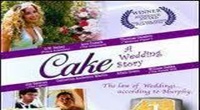
Pelli Pusthakam Full HD Movie Download

The Blind Side Full HD Movie Download
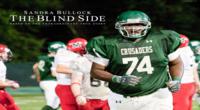
Harry Potter and the Half-Blood Prince Full HD Movie Download

Ajay Full HD Movie Download

Mee Kosam Full HD Movie Download

Pushpalatha Neti Poratam Full HD Movie Download
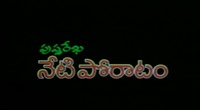
Pelli Kanuka Full HD Movie Download

Maa Intayana katha Full HD Movie Download

Tarzan Sundari Full HD Movie Download

Ninne Ishtapaddanu Full HD Movie Download

Nakhuda Full HD Movie Download

Kaala Patthar Full HD Movie Download
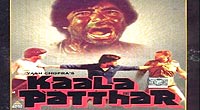
Download latest Movie from bollywood
- 1> baaghi 3
- 2> THE SKY IS PINK MOVIE FULL STORY AND REVIEW
- 3> Luka Chuppi
- 4> TO ALL THE BOYS I’VE LOVED BEFORE
- 5> Kabir Singh
- 6> Street Dancer 3D
- 7> Simmba
- 8> Gone Girl
- 9> The Girl Who Lived
- 10> Ludo
- 11> DILWALE DULHANIA LE JAYENGE
- 12> GUILTY
- 13> The Godfather
- 14> Adventures of Rusty
- 15> Sooryavanshi
- 16> Satyameva Jayate 2
- 17> Thappad
- 18> Bhool Bhulaiyaa 2
- 19> KGFChapter 2
- 20> Mardaani 2
- 21> Pinjar
- 22> Shivaji maharaj
- 23> Ek Villian 2
- 24> Hungama 2
- 25> Divergent
- 26> Mumbai Saga
- 27> The Internship
- 28> HIT (telugu)
- 29> Panga
- 30> The perfect date
- 31> 16 December
- 32> Gopala Gopala (Telugu)
- 33> Brahmastra
- 34> Gangubai Kathiawadi
- 35> Manmadhudu
- 36> Nenu local
- 37> Mahanati
- 38> Shatamanam bavathi
- 39> Lagaan
- 40> After
- 41> MOM
- 42> Shamshera
- 43> Raguvaran BTech
- 44> Khakee
- 45> The villain
- 46> OM
- 47> Mr. perfect
- 48> Bueatifull mind
- 49> Hichki
- 50> Gabbar Singh
- 51> Jogi
- 52> Before Sunrise
- 53> Before Sunset
- 54> Before Midnight
- 55> The Big Bull
- 56> Top Gun: Maverick
- 57> The Purge
- 58> The Sky is Pink
- 59> Laxmmi Bomb
- 60> Sadak 2
- 61> Sufna
- 62> Prithviraj
- 63> PK
- 64> Coolie No 1(2020)
- 65> Black Widow
- 66> Dear Zindagi
- 67> Dil Bechara
- 68> PHIR HERA PHERI
- 69> WAR
- 70> Dostana
- 71> RRR: Roudram Ranam Rudhiram
- 72> Maidan
- 73> Dabbang 3
- 74> Chhalaang
- 75> life as we know it
- 76> SherShaah
- 77> Sandeep Aur Pinky Faraar
- 78> Event Horizon
- 79> 83
- 80> Radhe: Your Most Wanted Bhai
- 81> Gunjan Saxena: The Kargil Girl
- 82> Mr India
- 83> Vivah
- 84> Anokha Bandhan
- 85> Ghost
- 86> Bhoot: Part One - The Haunted Ship
- 87> Haseen Dilruba
- 88> Laal Singh Chaddha
- 89> Qismat
- 90> Rajput
- 91> Drive
- 92> Dil Chahta Hai
- 93> Dil Ki Baazi
- 94> Dil Ka Rishta
- 95> Teesri Manzil
- 96> Dil
- 97> Love Aaj Kal
- 98> Khaali Peeli
- 99> Bunty Aur Babli 2
- 100> Atrangi Re
- 101> Gulabo Sitabo
- 102> Jodi
- 103> Suraj Pe Mangal Bhari
- 104> Deewana
- 105> Attack
- 106> Sardar Udham Singh
- 107> Toofan
- 108> THE LOVEBIRDS
- 109> Jersey
- 110> Ginny Weds Sunny
- 111> Thalaivi
- 112> Shiddat
- 113> Angels vs Zombies
- 114> Koi Mil Gya
- 115> Thank God
- 116> Bhuj: The Pride of India
- 117> Hum Aapke Hain Kaun
- 118> The Platform
- 119> Bird Box
- 120> Roohi Afzana
- 121> Torbaaz
- 122> Nikamma
- 123> World War Z
- 124> Extraction
- 125> Train to Busan
- 126> Life of Pi
- 127> SHAADI MEIN JROOR AANA
- 128> Himmat Aur Mehnat
- 129> To All The Boys: P.S. I Still Love You
- 130> Mimi
- 131> Good Newwz
- 132> Shubh Mangal Zyada Saavdhan
- 133> Raabta
- 134> Harry Potter and the Philosopher's Stone
- 135> Harry Potter and the Chamber of Secrets
- 136> Chhapaak
- 137> War of the Worlds
- 138> Harry Potter and the Prisoner of Azkaban
- 139> Harry Potter and the Goblet of Fire
- 140> MURDER MYSTERY
- 141> Shakuntala Devi
- 142> Bachchan Pandey
- 143> Jayeshbhai Jordar
- 144> Sheer Qorma
- 145> Saina
- 146> 'O' Pushpa I hate tears
- 147> Kedarnath
- 148> MS Dhoni The Untold Story
- 149> Chhichhore
- 150> Badhaai Ho
- 151> Unstoppable
- 152> Oz the Great And Powerful
- 153> The Girl on the Train
- 154> Haathi Mere Saathi 2020
- 155> The Conjuring: The Devil Made Me Do It
- 156> Gandhi Se Pehle Gandhi
- 157> The Song of Scorpions
- 158> Srimanthudu
- 159> Hello Guru Prema Kosame
- 160> Beauty and The Beast
- 161> Black Panther
- 162> Charlie and the Chocolate Factory
- 163> Bole Chudiyan
- 164> Fidaa
- 165> Duvvada Jagannadham
- 166> Bruce Lee: The Fighter
- 167> Hyper
- 168> Yaara
- 169> Red (2020)
- 170> Shivam
- 171> That Is Mahalakshmi
- 172> Nishabdham
- 173> Aashram 2020 web series
- 174> Laxmii
- 175> Mismatched
- 176> STUDENT OF THE YEAR 2
- 177> NAIL POLISH
- 178> Ramprasad Ki Tehrvi
- 179> KAAGAZ
- 180> 12 o Clock
- 181> The Power
- 182> bolo hau
- 183> Tribhanga
- 184> JAMUN
- 185> Madam Chief Minister
- 186> Maasaab
- 187> Aadhaar
- 188> Tanhaji
- 189> Bhaagi 3
- 190> Bhootnath
- 191> MALANG
- 192> Jai Mummy Di
- 193> Haathi Mere Saathi 2021
- 194> Shakeela
- 195> Unpaused
- 196> Annayya
- 197> Vamsoddharakudu
- 198> Mrugaraju
- 199> Narasimha Naidu
- 200> Sankranti
- 201> Manasu Maata Vinadhu
- 202> Anjaane
- 203> Apaharan
- 204> Bachke Rehna Re Baba
- 205> Bewafaa
- 206> Roohi
- 207> Radhe
- 208> Zindagi Khoobsoorat Hai
- 209> Yeh Mohabbat Hai
- 210> Yeh Kya Ho Raha Hai?
- 211> The Tomorrow War
- 212> DehradunDiary
- 213> Meri Shaadi Karaoo
- 214> Matruu Ki Bijlee Ka Mandola
- 215> No One Killed Jesica
- 216> Aag Ka Goola
- 217> Eight Million Dollars
- 218> Three Hundred
- 219> Cats and Dog
- 220> Decoy
- 221> Gold Rush
- 222> You Have Got Mail
- 223> Final Destination three
- 224> Tofan
- 225> Jungle
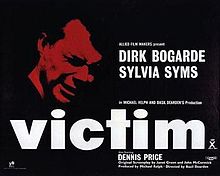 Story of movie Victim 1961 Film :
Story of movie Victim 1961 Film : 